The efforts of two women have given hundreds of street and slum children of Dehradun the hope to dream of a promising future.
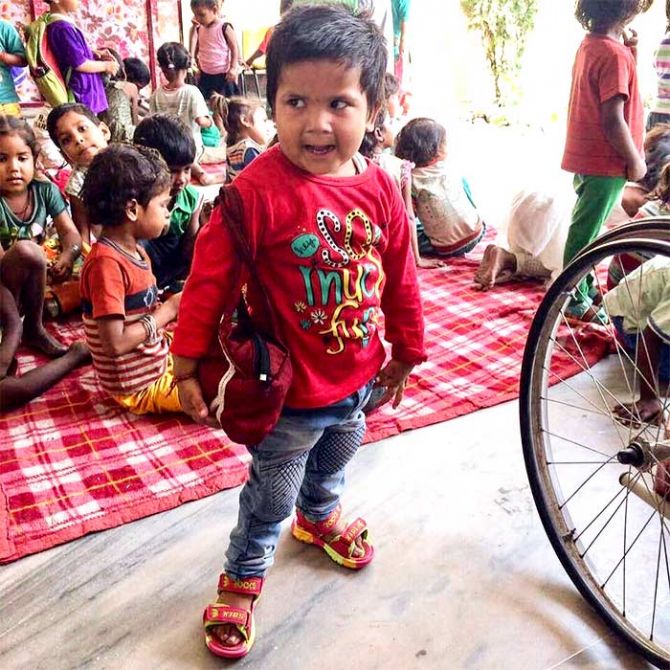
'Out of difficulties grow miracles.'
— Jean de la Bruyere
Hope is an alien concept if you are a child born in Dehradun’s Bindal slum that lines the side-banks of the unpredictable Bindal river.
Your parents are most likely daily-wage labourers who work at a construction site.
There is a strong chance that your father is an alcoholic, and is unable to function. This is a world where parents leave for work early in the morning and the eldest female sibling is left to fend for the younger ones.
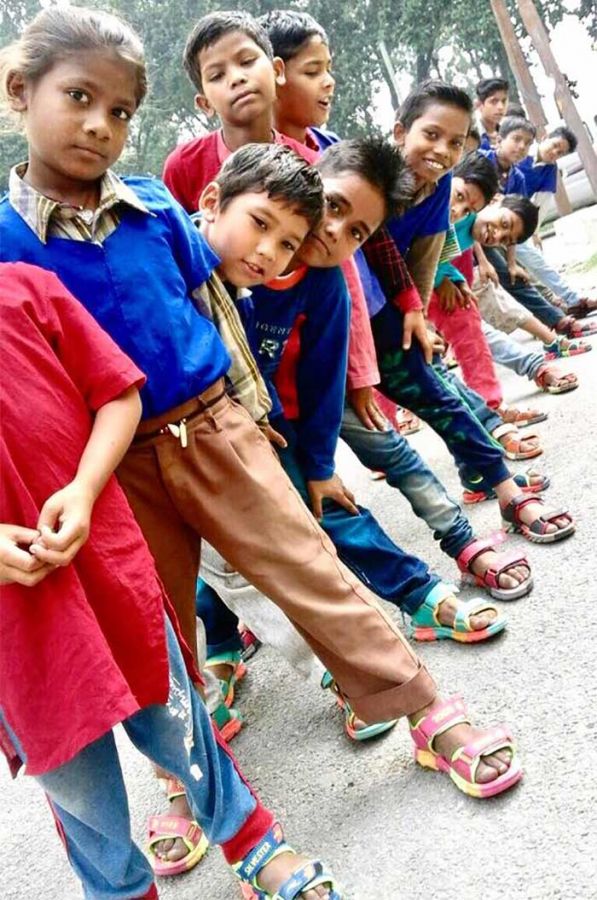
Food is a luxury. A lot of the earnings -- meagre to begin with -- are spent on alcohol. Addiction to whiteners can be found in children as young as five.
The surroundings don’t offer much hope either. Filth is the mainstay. Children of all ages -- unkempt and unattended -- scamper around barefoot along with stray dogs and pigs, begging or making their way to the closest temple to find a meal.
Garbage heaps abound, drain water overflows, the smells make you sick and the shanty dwellings look shaky as paper.
A heavy rain and the dwelling may be lost to the spate of the rising river. Nurture is a concept alien to most and nature is something you learn to fear.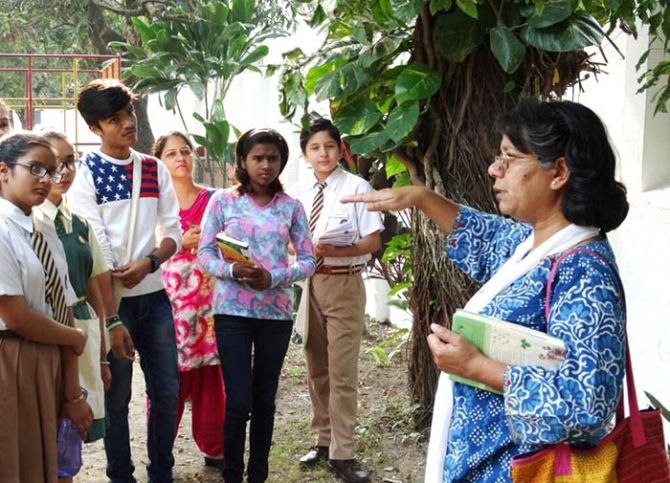
It was November 2008 when the word hope made its first intrusion in the Bindal slum.
Shaila Brijnath, who had returned to India after 40 years overseas, came across a couple of women who were trying to teach a bunch of around 30 kids in a disused car park and decided to join in.
That was 10 years ago. Brijnath, now 54, had left behind a financially rewarding, but “soul-destroying” career as a stock-broker in New York, Paris and London. She had her own savings but there was also support in terms of a family trust -- Aasraa -- set up by her parents in Dehradun to do precisely the kind of work she had in mind.
Brijnath, who chairs the trust now, soon changed the face of the disused parking lot and put a small, but efficient, teaching operation in place. Realising how deeply malnourished the children were, she started using hot milk and bananas “as a bribe” to lure them, a strategy she deploys even today.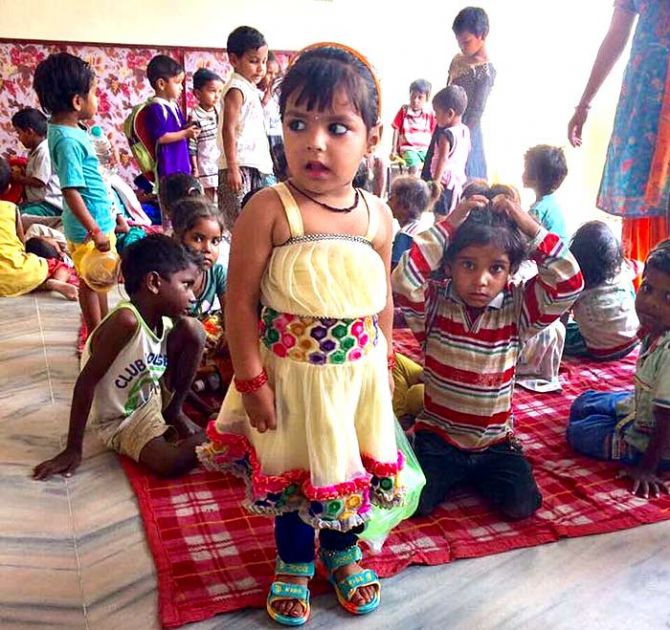
Around the same time that Brijnath was consolidating her initiative -- the disused parking had grown to house 130 kids -- Neelu Khanna, now 60, had been offered a rain basera or night shelter in the centre of Dehradun city to use during the day to teach street children. She and a co-worker had started out by teaching around 15 street kids on the pavement of a busy street, much to the bewilderment of residents, pedestrians and the children themselves.
Whatever his reasons, God, who had so far looked the other way, must have been smiling upon the children at the time because a chance meeting occurred between Brijnath and Khanna. It would change the fortune of hundreds of street and slum children in Dehradun. What started out with 150 children at inception in 2009 now encompasses 1,800 children across 17 projects in the city with a full-time staff strength of 140.
To start with, the Aasraa team draws children off the street and introduces them to the concept of basic literacy through what it calls “Street Smart” and readies them for school. Street Smart currently has 465 children. At the Shiv Sena centre (there are two centres in Bindal and one at the Inter State Bus Terminal), around 75 children come in daily and are taught by three teachers. A crèche for the very young at every centre allows the older siblings to attend classes.
When this reporter visits, the children’s attention wavers for a bit but all eyes are soon back on the TV screen that is telling them about colours. Most of the children have never seen a telelvision screen, and certainly not one this large. Television with its vivid images, the teacher explains, is what they look forward to the most.
There are two women helpers who look after the children, taking them to the toilet and looking after their general well-being. Twice a week, their hair and nails are examined and cut.
Although the main aim of Aasraa is to educate slum and street children as well as rag-pickers and give them a life worth living, “we cannot educate in isolation,” says Brijnath. If a child is cold, hungry, ill or scared, how can he or she study, she says.
As it has grown, Aasraa has kept its eye on nutrition, vaccination (the Max group has done this for free), medication, deaddiction, clothing and care that the children cannot or will not see at home. Close to 1,100 children are fed by the trust every day through an external kitchen. Aasraa aims to start a centralised in-house kitchen soon. Four shelter homes provide a place to live for 300 children who are either orphans or have been abandoned.
Eight centres -- premises that local schools have offered for free -- are used to run a massive after-school tutorial and homework support programme with over 1,100 children. There is also a centre affiliated to the National Institute of Open Schooling -- the first accredited centre in the city -- for children who are too old to join the regular schooling programme but who nonetheless want to study or do vocational training.
Four mobile vans are on the job to help children who are begging. These are mostly children who beg in areas where Aasraa doesn’t have a centre and whose parents do not permit them to leave the area. The children are left out all day to beg. On finding these children, Aasraa’s staff and outreach team visits and meets their parents to explain why the children should study instead of beg. In nine out of ten cases, the parents relent.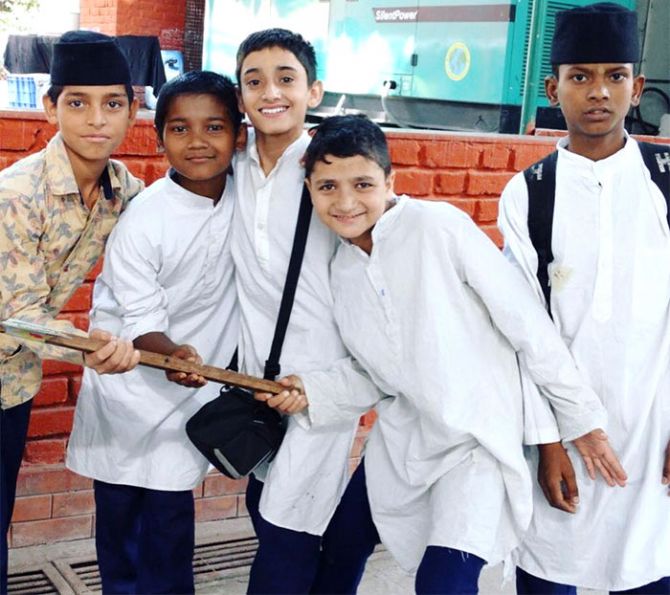
Although Aasraa currently operates only in Dehradun, support for its work has poured in from all over the world. The patrons of Fundacion Heres, a Spanish foundation, have visited thrice and recently bought the trust its first owned property in Bindal. After she found them on social media, Susan Blick, a New Zealand-based Australian photographer, came to Dehradun in September 2016 to see their work, took a series of stunning photographs of the children and used them to raise money for Aasraa in New Zealand. Blick says she is happy to see that “the staff aren’t flying around the world and addressing talks on how to break the poverty cycle”. Instead, they are “just doing it”.
Within India, too, Aasraa has found support from both foundations and private donors. Suhel Seth, managing partner of Counselage India, has been supporting it for years and while he is yet to visit, he says “it’s a delight to see the kids off the street with an equal chance for a future”.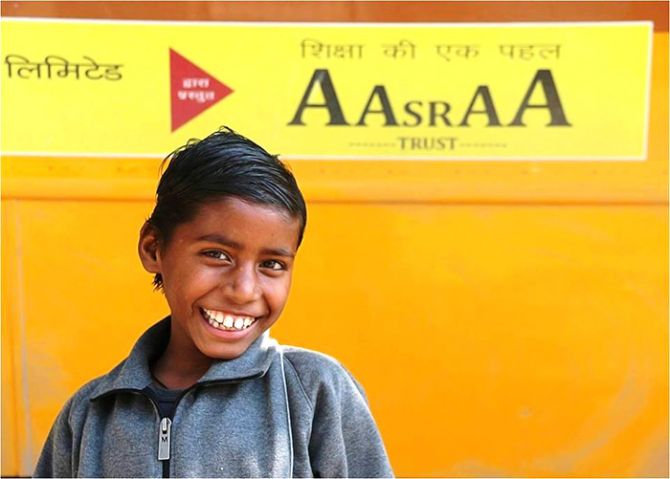
It’s not as though Aasraa succeeds with every child and every project. “Failure is part of it. Some kids have attitudes that have hardened and rather than letting one bad apple in, we prefer to accept defeat,” explains Khanna.
Sometimes projects, too, start with gusto but fizzle out due to lack of vision, planning or funds. “But for every door that closes, a new door opens,” says Brijnath, an eternal optimist who is always brimming with energy.
If Aasraa has changed the lives of hundreds, it has managed to do so for its two main pillars as well.
Khanna, a cancer survivor and a mother of two, is finally working closely with the street and slum children she wanted to all her life.
And, Brijnath, unmarried but with “1,800 children”, has found a new meaning to her life that New York, London or Paris could never provide.












 © 2025
© 2025